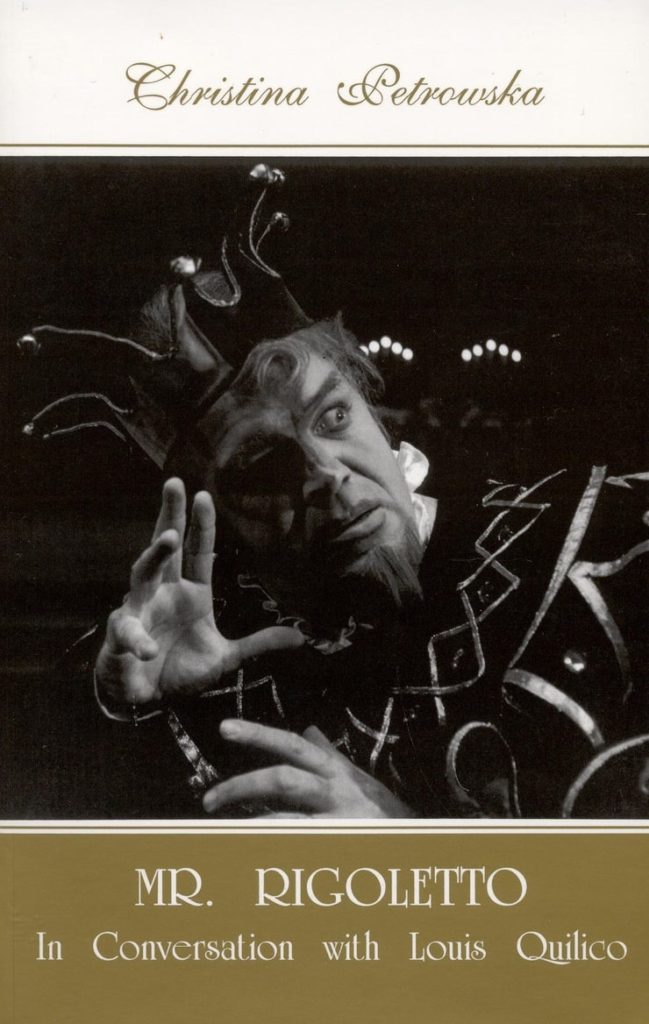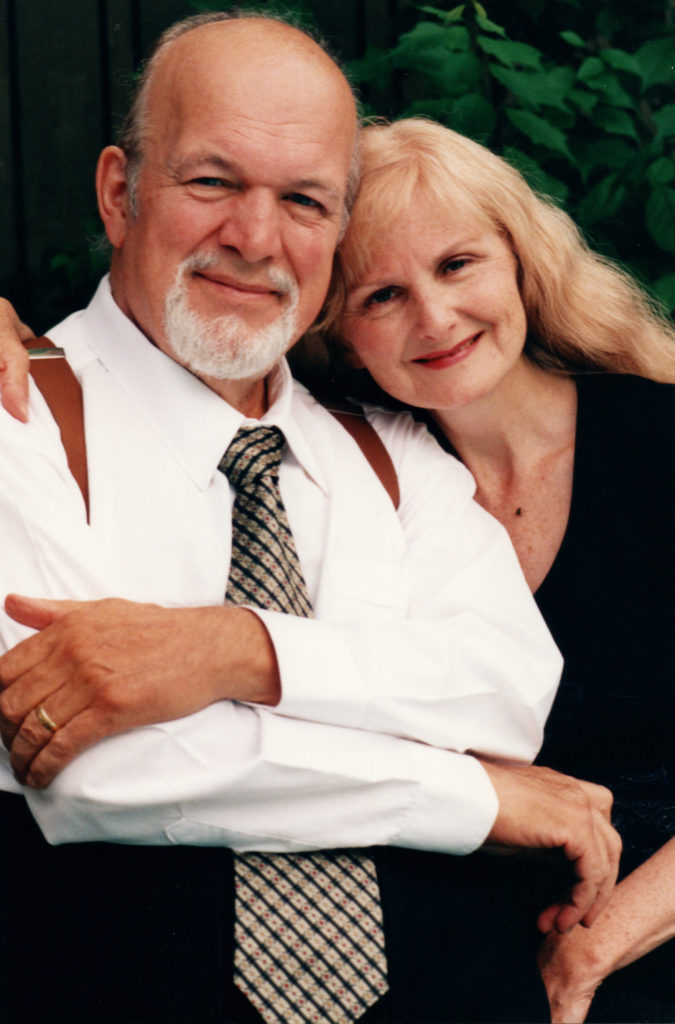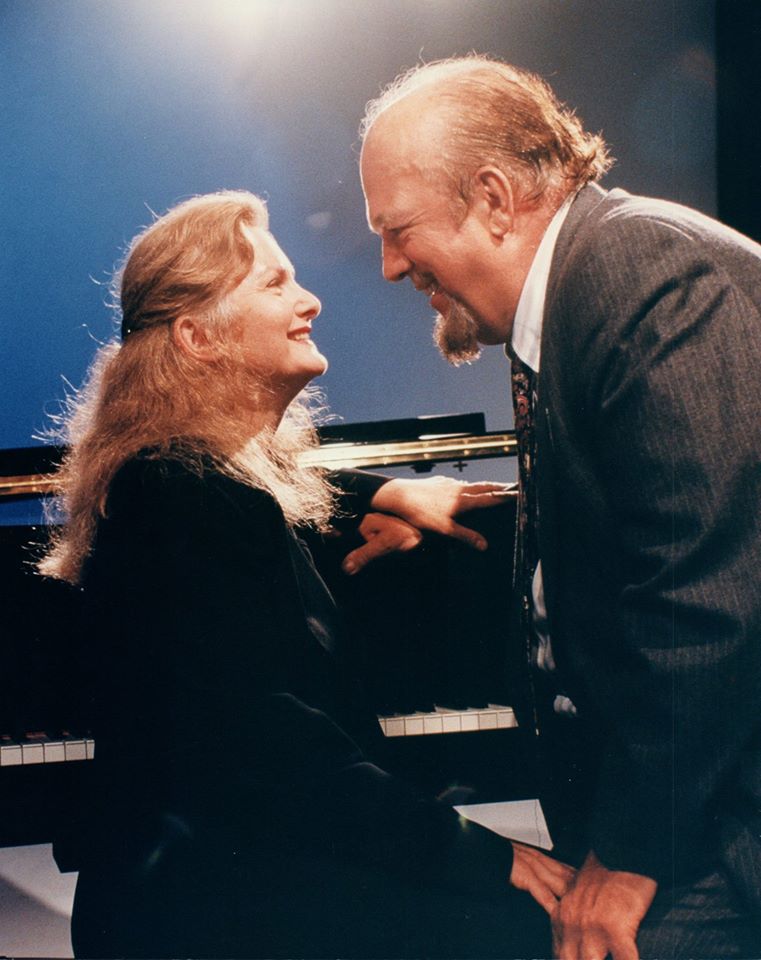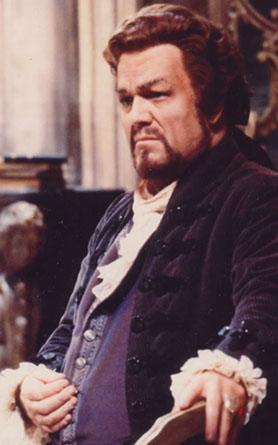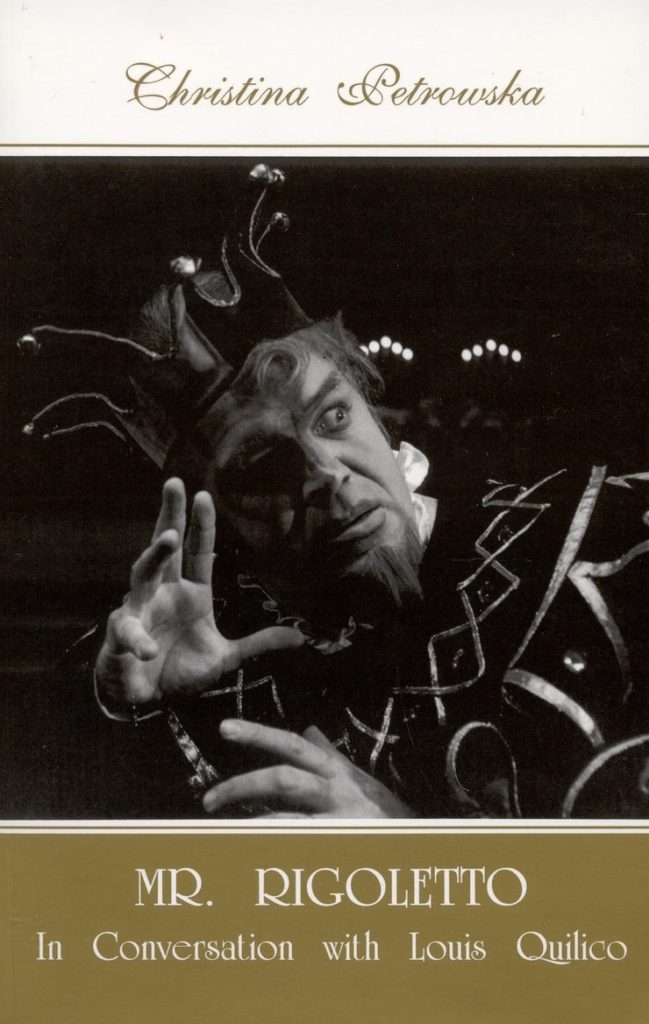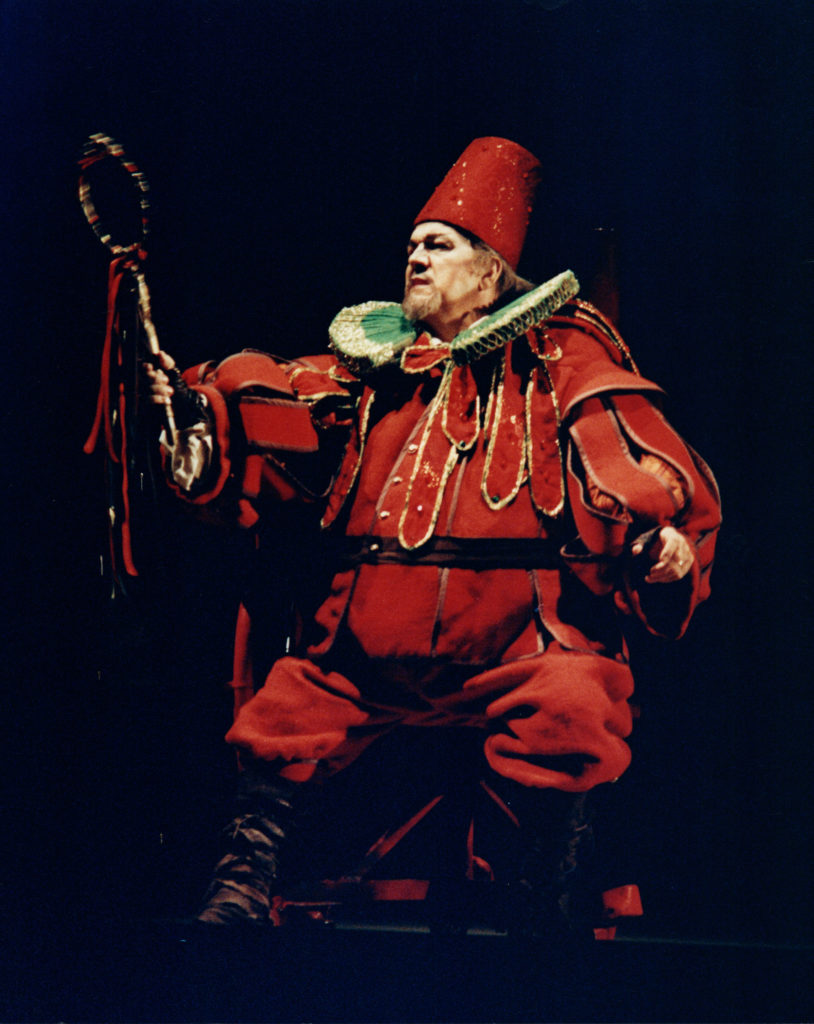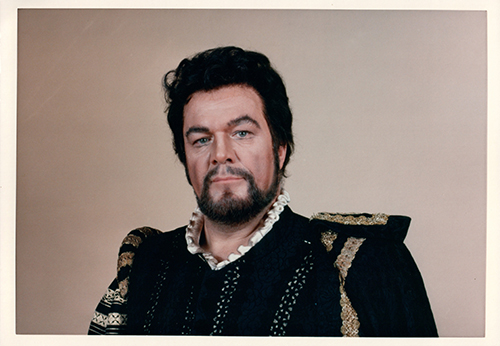Biography
LOUIS QUILICO, C.C.
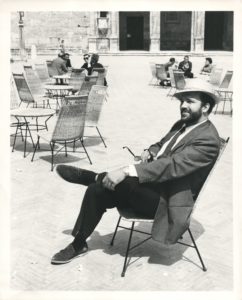
Louis Quilico in Italy
Louis Quilico’s sudden death on July 15, 2000 in Toronto, Canada, marked the end of an exceptional career. He had performed major baritone roles in many of the world’s great opera houses, including Covent Garden, the Paris Opera, Bolshoi and the Vienna Staatsoper. Nearly 300 appearances alone took place over 25 years at the Metropolitan Opera, where he performed with tenors Luciano Pavarotti, Placido Domingo, Jon Vickers and José Carreras, and sopranos Joan Sutherland, Renata Tebaldi, Renata Scotto and Beverly Sills, among others; and such leading conductors as James Levine, Zubin Mehta, Richard Bonynge and Claudio Abbado. After his retirement from the Metropolitan Opera, Quilico continued to perform and record, most often with his wife, celebrated concert pianist, Christina Petrowska Quilico CM OOnt FRSC,
who was recently appointed to the Order of Canada, the Order of Ontario and the Royal Society of Canada. The couple toured extensively together in duo recitals recorded four CDs including Mr. Rigoletto: My Life in Music on Analekta, and collaborated on two books and a teaching video.
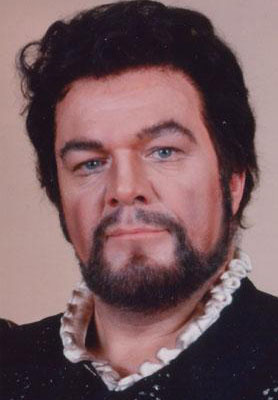
Louis Quilico at the Metropolitan Opera
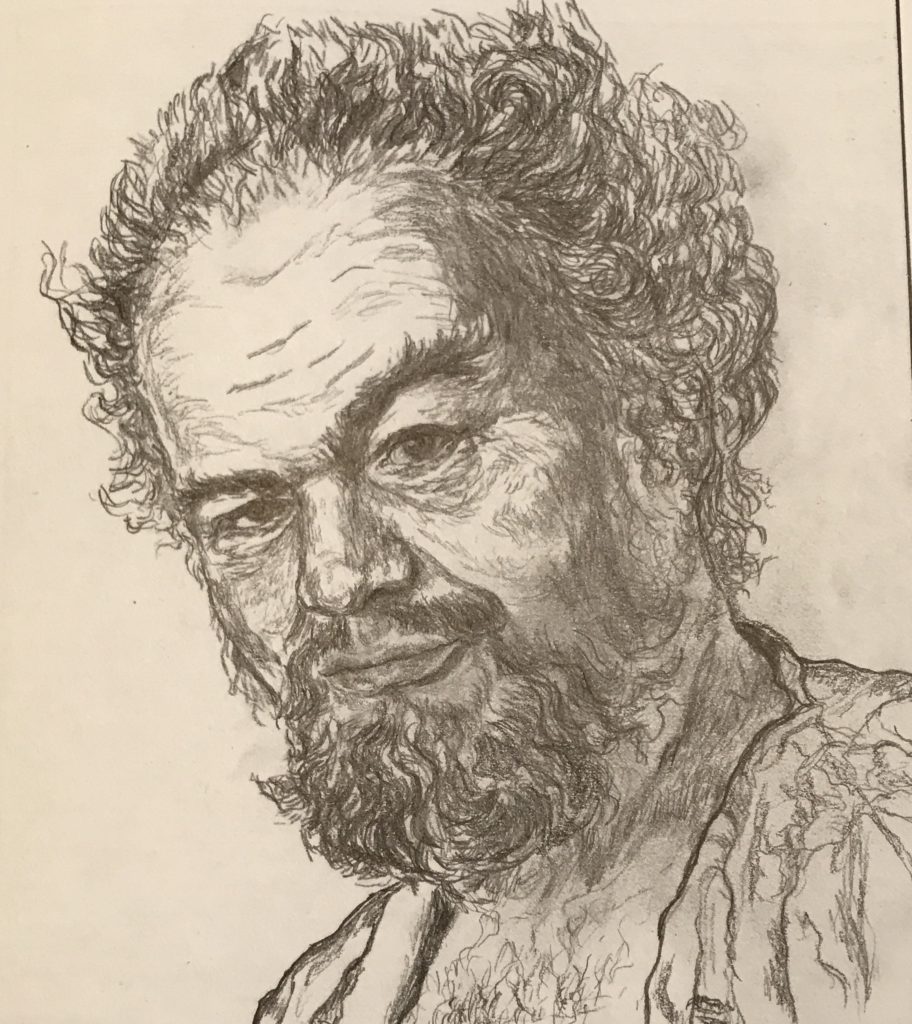
Louis Quilico as Falstaff. Pencil drawing by Christina Petrowska Quilico from her book Opera Illustrated (Captus Press)
Louis Quilico C.C. was one of the leading baritones of his generation. But it was his defining portrayal of Verdi’s hunchbacked jester that won him international acclaim and the sobriquet “Mr. Rigoletto”. He sang the role more than 500 times, the last being at the National Arts Centre in Ottawa in September 1994.
The rich quality of his robust voice was a testament to his own personally devised vocal techniques, which he generously shared with a new generation of singers and recorded in his own words for Mr. Rigoletto: In Conversation with Louis Quilico (Captus Press, 1996,1998), written with Quilico’s wife, Christina Petrowska Quilico, with a forward by Thomas Hampson.

Louis Quilico
In 1953, Louis Quilico won first prize in the CBC Radio competition Nos Futures Étoiles. He later toured with Rolande Garnier and Jeunesses Musicales before making his professional stage debut a year later, with the Opera Guild of Montreal.
In 1955 Quilico won the Metropolitan Opera Auditions of the Air. He subsequently made his New York City debut on October 10, 1955, in a production of Verdi’s La Traviata with the New York City Opera.
By the late 1950s, Quilico was an up-and-coming star on the international opera circuit, singing the title role in a historic production of Donizetti’s Il Duca d’Alba at the Spoleto Festival in 1959. (Produced by Luchino Visconti, the production was directed by Giancarlo Menotti and conducted by Thomas Schippers.)
The following year, he made his debut at London’s Covent Garden opposite soprano Joan Sutherland in La Traviata. He remained a member of the Covent Garden company from 1960 to 1963.
In 1962, Quilico made his Bolshoi Theatre (Moscow) debut in a production of Rigoletto. By 1963, he had performed at the Paris Opera (as Rodrigo in Don Carlos) and had a starring role in the premiere of Darius Milhaud’s oratorio Pacem in terris, under French conductor Charles Munch. In 1966, he was personally invited by Milhaud himself to sing the role of The Count in the world premiere of La mère coupable.
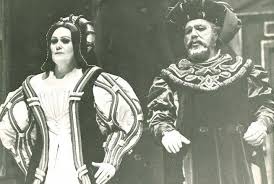
Joan Sutherland and Louis Quilico at Covent Garden
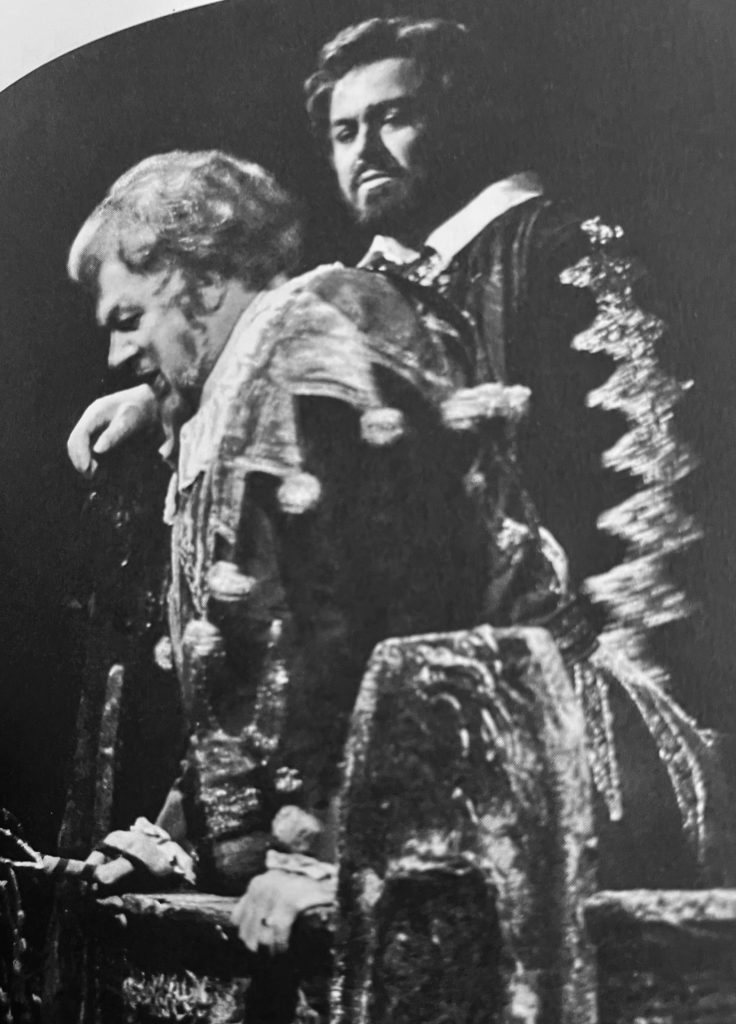
Louis Quilico and Luciano Pavarotti at the Metropolitan Opera in Rigoletto
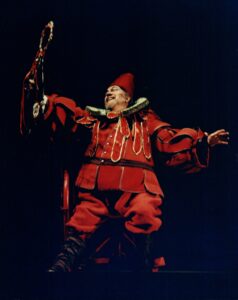
Mr. Rigoletto: final performance
Between 1964 and 1971, Quilico performed regularly at many of the world’s great opera houses: the Vienna Staatsoper, Teatro Colón of Buenos Aires, and Teatro Massimo of Palermo and Termi di Caracalla, and at the operas of Venice, Turin, Florence and Paris. He also performed frequently with the Canadian Opera Company and the Opéra du Québec. In 1969, he thrilled audiences from Moscow to Bucharest with starring roles in Rigoletto and Aida. During Canada’s centenary year, Quilico performed opposite Jon Vickers and Teresa Stratas in a lavish production of Otello at Montreal’s Place des Arts. He also sang in Stravinsky’s Oedipus Rex in Toronto, with the composer present.
Quilico made his professional debut in 1954 as Rangoni in Boris Godunov with the Opera Guild of Montréal. He won the Metropolitan Opera Auditions of the Air in 1955 and made his New York debut with the New York City Opera, singing Germont in La traviata on October 10, 1955. Years later, in 1970, he sang the role of Nottingham in the Tito Capobianco production of Roberto Devereux opposite Beverly Sills, Plácido Domingo and Susanne Marsee.
On the international scene, Quilico made his debut in 1959 at the Spoleto Festival in the title role of Donizetti’s “Il duca d’Alba.” He made his debut at Covent Garden in London in La traviata opposite Dame Joan Sutherland in 1960, and remained a member of that company until 1963. He sang Rigoletto in his debut at the Bolshoi Theatre in Moscow, in 1962. In 1963 Quilico made his Paris Opéra debut as Rodrigue in Don Carlos. He was a member of the cast for the premiere of the opera La Mère coupable by Milhaud, in Geneva in 1966. He also appeared regularly at the Vienna State Opera and the Teatro Colón in Buenos Aires.
In Canada, Quilico performed regularly with the Canadian Opera Company in Toronto, debuting as Iago in Otello in 1960; later roles included Rigoletto, Macbeth, Simon Boccanegra, Germont, Amonasro in Aïda, Scarpia in Tosca, Enrico in Lucia di Lammermoor, He also made several appearances on CBC notably as Macbeth (opposite Marisa Galvany) in 1973. Quilico also sang at the Stratford Festival, the Vancouver Opera, and the Opéra du Québec.
Throughout the 1970s he performed in various centres in the United States, including San Francisco (Luisa Miller), Philadelphia (I puritani), New Orleans (Manon), and Baltimore (Tosca). He participated in concert versions of rare operas with the American Opera Company and conductor Eve Queler at Carnegie Hall, notably Gemma di Vergy and Parisina d’Este opposite Montserrat Caballé. In 1972 he sang the title role in the Opera Orchestra of New York‘s concert performance of Gioachino Rossini‘s William Tell with Klara Barlow as Mathilde. Quilico reached the Metropolitan Opera in February 1972 when he replaced at short notice the scheduled Golaud (Thomas Stewart) in Pelléas et Mélisande. His official debut there took place on January 1, 1973, as Germont. In 1987, Quilico appeared in Manon opposite his son Gino Quilico, also a baritone, a performance notable for being the first of a father and son in the same opera at the Met.
During the Met’s 1976 season, he debuted the role of the Bishop of Blois in their premiere of Massenet’s Esclarmonde, repeating his earlier commercial recording of the same role from a year earlier.
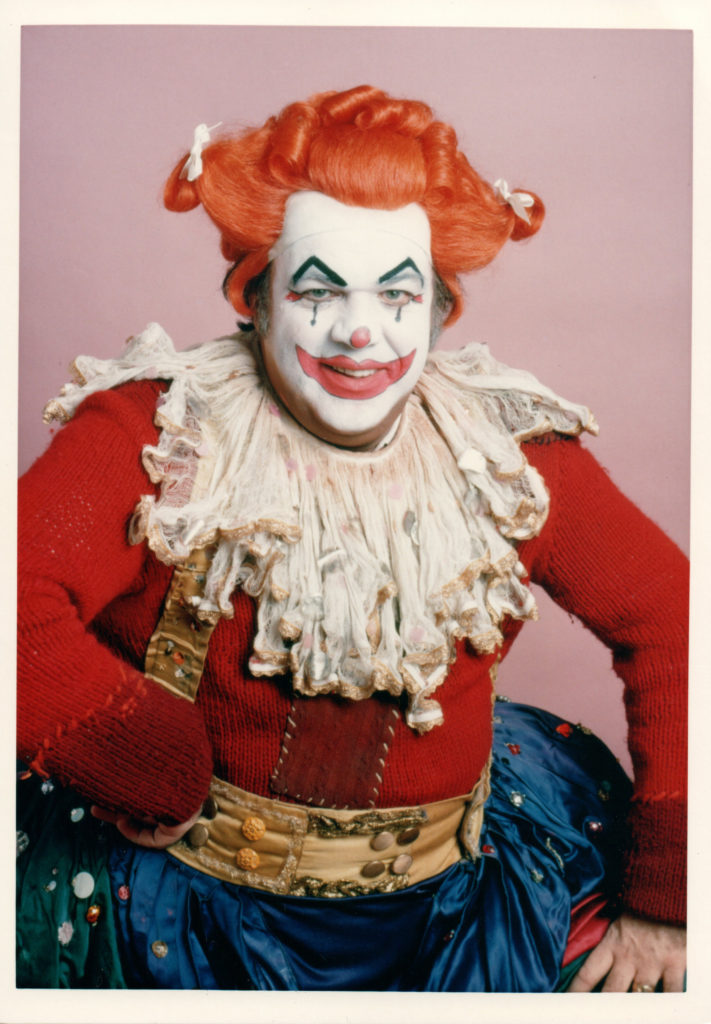
Louis Quilico in I Pagliacci at the Metropolitan Opera
Quilico was also active as a teacher. He taught at the Faculty of Music of the University of Toronto, 1970–1987, at McGill University in Montréal, 1987–1990, at Philadelphia’s prestigious Academy of Vocal Arts, 1995–2000, and the Glenn Gould School, Toronto. In 2000 his widow Christina Petrowska Quilico created the Christina & Louis Awards at the Ontario Arts Foundation which gives awards to encourage emerging young singers. One of his students was bass John Dodington. He also instructed at Mannes College in New York City and privately.
With his wife, pianist Christina Petrowska Quilico, he embarked on a new phase of his career. The couple toured extensively in duo concerts, collaborated on his biography, Mr. Rigoletto: In Conversation with Louis Quilico and filmed a teaching video for York University. Quilico also continued his solo operatic career, performing Rigoletto for the last time in Ottawa in September 1994 with Opera Lyra (his 510th performance of the role). Quilico’s appearances at the Metropolitan Opera during the 1990s included several of Pagliacci as well as Rigoletto, Tosca and Adriana Lecouvreur. He celebrated his 25th year at the Metropolitan Opera in 1996–97, and retired from that company in 1998. Analekta issued a CD entitled Mr. Rigoletto: My Life in Music (with pianist Christina Quilico) to commemorate the baritone’s 75th birthday, and Captus Press released the 2nd edition of Mr. Rigoletto: In Conversation with Louis Quilico in 1998.
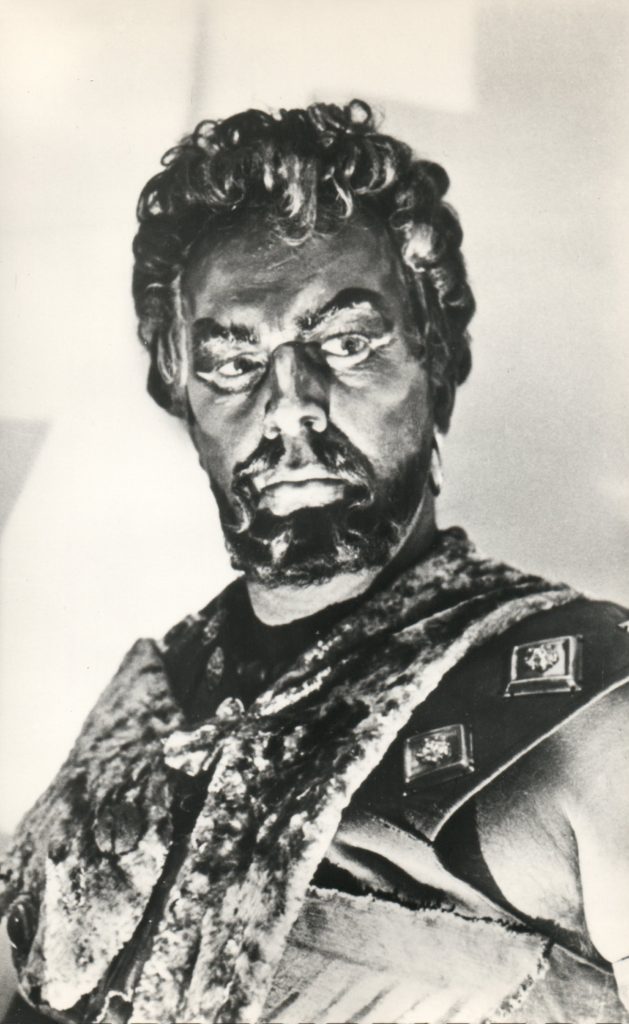
Louis Quilico in Aida at the Metropolitan Opera
Louis Quilico made his Metropolitan Opera debut in February 1972 when he replaced Thomas Stewart as Golaud in Debussy’s Pelléas et Mélisande. In December 1972, he replaced the great Italian baritone Tito Gobbi, in yet another Met production, Otello, opposite fellow Canadian Jon Vickers.
Quilico joined the New York company’s roster in 1973 and sang in five production his first season: three Verdi operas: La Traviata, Rigoletto and Il Trovatore; Berlioz’s Les Troyens and Gounod’s Faust. He remained with the Met for 25 consecutive seasons, appearing in many of the company’s popular radio and television broadcasts.
In 1987, Louis and his son Gino Quilico made opera history when they became the first father/son team to perform at the Met. Later that same year, they were featured together again in Mozart’s Don Giovanni for the Canadian Opera Company.
Louis Quilico was a Companion of the Order of Canada and a recipient of the prestigious Governor General’s Performing Arts Award in 1999. He held an honorary doctorate from the Université de Québec (1987) and in 1999 was awarded the first Distinguished
Visitor Award by the University of Toronto.
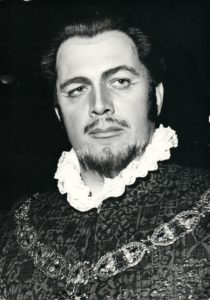 He received the Prix de musique Calixa-Lavalée (1965) and the Canadian Music Council Medal (1985). In 1996, he was honored by the Sarasota Opera Guild in Florida and presented with the keys to the city. In 1999, he was presented with an award from the Licia Albanese Foundation and the Istituto Italiano di Cultura, Montreal/Italian Cultural Institute of Montreal. A street in the Montreal municipality of Saint-Léonard is named in his honor.
He received the Prix de musique Calixa-Lavalée (1965) and the Canadian Music Council Medal (1985). In 1996, he was honored by the Sarasota Opera Guild in Florida and presented with the keys to the city. In 1999, he was presented with an award from the Licia Albanese Foundation and the Istituto Italiano di Cultura, Montreal/Italian Cultural Institute of Montreal. A street in the Montreal municipality of Saint-Léonard is named in his honor.
From 1970 to 1987, Quilico taught at the Faculty of Music, University of Toronto, and from 1987 to 1990 at McGill University in Montreal. He also instructed at Mannes College in New York City and privately. Up until the time of his death, Quilico shared his knowledge at Philadelphia’s Academy of Vocal Arts and at the Glenn Gould (professional) School, Royal Conservatory of Music in Toronto.
Louis Quilico was born in Montreal, Quebec, of an Italian father and a French-Canadian mother. He studied singing as a youth with Frank H. Rowe in his native Montreal while singing as a solo chorister in a church choir. After winning a prize in 1947,
he continued his studies in Italy, studying at the Accademia Nazionale di Santa Cecilia in Rome with Teresa Pediconi and baritone Riccardo Stracciari. With the aid of a scholarship he also studied at Mannes College, New York, with Martial Singher (voice), Ralph Herbert (staging) and Emil Cooper (repertoire), and at the Conservatoire de musique du Québec à Montréal where he worked with Singher.
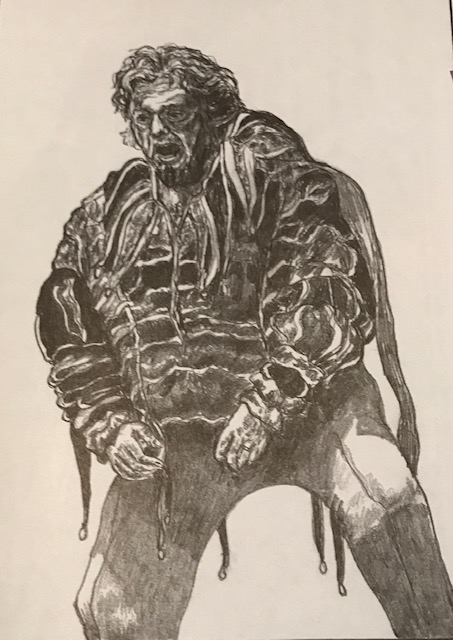
Pencil drawing of Louis Quilico as Rigoletto by Christina Petrowska Quilico from her book Opera Illustrated: An Artistic Odyssey (Captus Press)
Christina Petrowska Quilico, C.M.,OOnt, FRSC, an internationally known pianist, educator and recording artist established the Christina and Louis Quilico Awards in 2000 to honour the memory of her late husband, renowned baritone Louis Quilico. Given at a formative time in their careers, it would be a fitting tribute to his commitment in training the next generation of artists. As she said, “Launching an award was something we could do to leave a legacy in memory of Louis’ success as a singer and as a support to future generations.” The “Christina and Louis Quilico Awards” recognize outstanding young singers of the Canadian Opera Ensemble. They are held at the Four Seasons Performing Arts Centre in partnership with the Ontario Arts Foundation and the Canadian Opera Company. Many of the winners have gone on to international careers throughout the U.S, Canada and Europe. Winners have also won the Metropolitan Opera National Council Audition Finals.
During his 45 years on the stage, Louis Quilico shared performing credits with Luciano Pavarotti, Plácido Domingo, José Carreras, Joan Sutherland, and Renata Tebaldi. He was instrumental in furthering the careers of many young singers through his teaching and master classes. In addition to his extensive stage career, Louis Quilico taught at the University of Toronto, McGill University, the Philadelphia Academy of Vocal Arts and the Glenn Gould School. Christina decided that an award to encourage young singers in the formative time of their careers would be a fitting tribute to Louis’ commitment in training the next generation of artists. “Launching an award was something we could do to leave a legacy in memory of Louis’ success as a singer and as a support to future generations.” The Ontario Arts Foundation manages the endowment that funds the Christina and Louis Quilico Awards.
The Christina and Louis Quilico Awards are presented every two years and recognize outstanding young singers of the Canadian Opera Ensemble. They are held at the Canadian Opera Company
Four Seasons Performing Arts Centre in partnership with the Ontario Arts Foundation.
Past winners include Rihab Chaieb (former member of the Metropolitan Opera’s Lindemann Young Artist Program and 2018 Operalia Third Prize winner),
Emily D’Angelo (winner of the 2016 Metropolitan Opera National Council Audition Finals, and 2018 Operalia winner of
the First Prize, Zarzuela Prize, Birgit Nilsson Prize, and Audience Prize), and Claire de Sévigné (JUNO award
nominee for Classical Album of the Year). Since 1980, nearly 230 young professional Canadian singers and pianists have acquired foundational opera experience through the Ensemble Studio. Former members include Ben Heppner, Krisztina Szabó, Gordon Bintner, Ambur Braid, Miriam Khalil, and Wallis Giunta, and David Pomeroy.
Winners of the 2023 Christina and Louis Quilico Awards Vocal Competition Announced
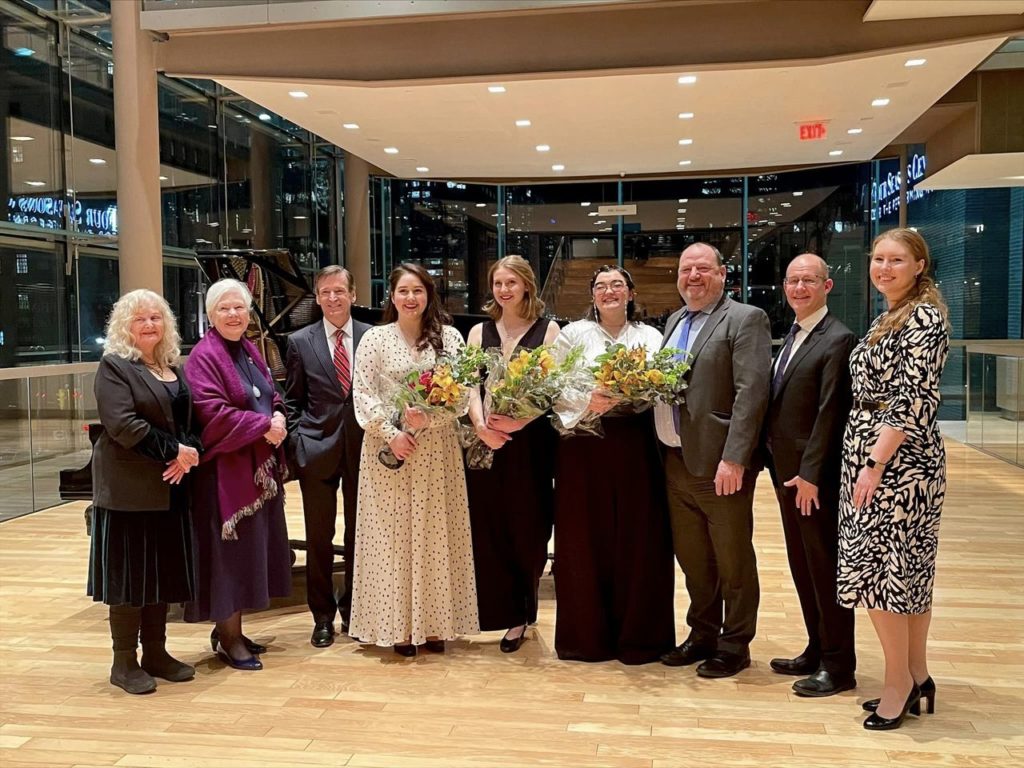
(l-r) Christina Quilico, the Honourable Elizabeth Dowdeswell Lieutenant Governor of Ontario, Ontario Arts Foundation Executive Director Bruce Bennett, Second Prize Winner Ariane Cossette, Third Prize Winner Alex Hetherington, First Prize Winner Midori Marsh, COC General Director Perryn Leech, Steven Philcox and Carolyn Sproule. Photo: Karen E. Reeves
Toronto – February 7, 2023 – On Monday, February 6th, the rising stars of the Canadian Opera Company Ensemble Studio, Canada’s premier training program for young opera professionals, competed in the sixth biennial Christina and Louis Quilico Awards, with Midori Marsh claiming the first prize of $6,000. Ariane Cossette won the second prize of $3,500 and Alex Hetherington won the third prize of $2,500. Career development awards of $1,000 each were also presented to Alex Halliday, Queen Hezumuryango and Charlotte Siegel in recognition of the awards’ 20th anniversary. The event took place at the Free Concert Series in the Richard Bradshaw Amphitheatre in the Four Seasons Centre for the Performing Arts.
The COC Ensemble Studio is an innovative artist development program for emerging Canadian opera professionals. The company’s uniquely collaborative approach blends advanced study and practical experience through a multi-year program that’s individually tailored for each member. Artists receive intensive vocal coaching; language, movement and acting studies; as well as private masterclasses with renowned opera professionals.
Members of the Ensemble Studio are the COC’s resident artists and important community ambassadors for the company. Through performances and collaborations with local schools and organizations, Ensemble members are often the first point of contact with opera for many; their ongoing participation in this area is integral to creating inclusive and welcoming opportunities for more people to engage with the art form.

